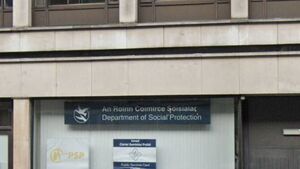Less victim-blaming and more common sense

Social Welfare office
I knew an elderly Jewish man one time, a wise old fellow who taught me a lot of things about business and life in general. He had a lot of sayings, stuff I wish now that I’d written down. One of these was ‘I am too soon old, and too late smart, or ‘shmart,’ as he pronounced it. It’s one I often quote to myself, a requiem for my younger self. If we all had the wisdom of years a lot sooner, we would have made less mistakes.
He had another piece of homespun advice I never forgot that often saved me from losing out in a negotiation. He would say, ‘in any situation, if you don’t know who is the patsy, then maybe you’re the patsy.’ In other words, when there is clearly going to be one loser in a particular transaction, you should look around the group of involved people and consider which of them will lose out if the deal goes through. If you can’t figure out who is coming out of the deal on the losing side, then maybe you need to look in the mirror.
As a society, we often accept the status quo as something we can’t change, a fixed background to life that is outside our control. We tend not to question why things are how they are, except maybe when we get a wake-up call from a more or less unrelated source. A row that broke out in government last week around a proposal by the Equality Minister to limit access to housing by war refugees triggered a comment from Minister Michael Martin to the effect that it is ‘possible’ that some Ukrainian refugees may be coming here because our social benefits are more generous than elsewhere, but is that correct?
Certainly it is true that our benefits system is generous by European standards. In Germany, for instance, non-contributory benefits for adults are around €90 a week, or €72 a week for 18 to 24 year olds. This compares to €220 and €129.70 respectively in Ireland, but it’s not all about the money. In Germany, if a person rejects a job offer without significant reason, their basic allowance is reduced by 30% for three months. If a second job is rejected within one year, the basic allowance is reduced by 60%, and the payment is completely withdrawn in the event of a third refusal to work.
But if we do have a bountiful welfare system here, why pick on people fleeing war? If there is a problem with over-generous welfare payments for people who have never worked, then fix that. When the refugees have gone home, we will still have the problem if we don’t address the root of it. If we are throwing money around in a way that discourages Irish people from working, maybe, as my late friend used to say, we’re the patsys.





